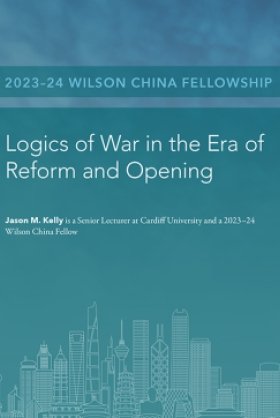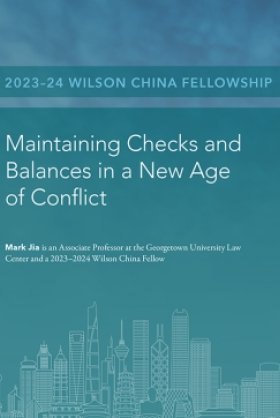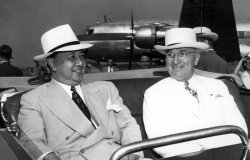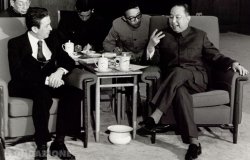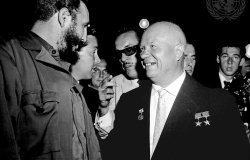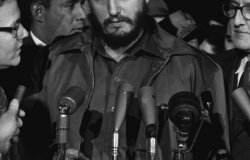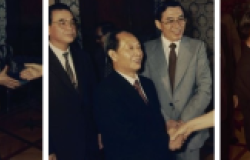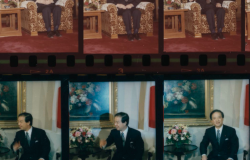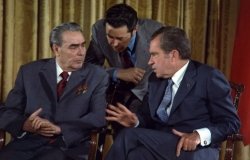Northeast Asia during the Cold War: Security and Development
The Center for Cold War and Contemporary International Relations of Northeast Normal University, with support from the History and Public Policy Program, held an international conference titled “Northeast Asia during the Cold War: Security and Development” on September 12-13 in Changchun. Among the topics discussed were the origins of the Cold War and the political choice of the Northeast Asia countries, the Korean war, China’s Northeast and its border relations with its neighbors, the regional security of Northeast Asia, and the archival research of the Northeast Asia issues.
Overview
The area of the Northeast Asia is one of the most economically dynamic and the most politically sensitive region in the world. It is one of the unresolved region so far from the legacy of the cold war. It is also a microcosm of the process of the cold war. In particular, the origin and development of the cold war not only influence the political choice of many countries, but also affect its economic and social development.
Center for Cold War and Contemporary International Relations of Northeast Normal University held an international conference on “Northeast Asia during the Cold War: Security and Development” on September 12-13 in Changchun, supported by Center for Cold War International History Studies of East China Normal University and the Woodrow Wilson International Center for Scholars. Scholars from China, Japan, Korea, United States and Russia presented their recent research on Northeast Asia during the Cold War. They also discussed many issues like the origins of the Cold War and the political choice of the Northeast Asia countries, the Korean war, China’s Northeast and its border relations with its neighbors, the regional security of Northeast Asia, and the archival research of the Northeast Asia issues.
Schedule
Topic
September 12th
09:30-11:30
Kazuko Mori:Is the 1970s in the Late Phase of the Cold War or the Post Cold War Era?
Suh Choo Suk: The Korean War and Cold War in Asia
Shen Zhihua:Here and Faraway —— the Initial Shaping of Sino-North Korea’ Party Relations after WWII (1945-1950)
13:30-16:30
Park Young Sil:The Korean War and the Advent of the Cold War in East Asia: A Case of ‘Anticommunist Chinese POWs Foreign Delegation’
Nobuo Shimomai: The Territorial Issue among Japan, the United States, and the Soviet Union from 1951 to 1970
Cho Sung Hun:The Reflection of Establishment of Joint Han River Estuary in the Armistice Agreement of Korean War
Deng Feng: The New Progress of the Korean War Studies in China in the Past Five Years
Lee Sang Ho: Plan of United Nations Command for the Evacuation of Republic of Korea during the Korean War
Toyoko Yoshida: A Reconsideration of the 1945 Sino-Soviet Treaty: Focusing on the Outer Mongolia Factor
Toyoko Yoshida: A Reconsideration of the 1945 Sino-Soviet Treaty: Focusing on the Outer Mongolia Factor
Qu Xiaofan: The Historical Beginning of the Maintenance of the Tumen River Sea and Fishing Rights in Contemporary China——A Survey of the Lower Reaches of the Tumen River Fisheries by Jilin Province in 1964.
08:30-11:50
Charles Kraus:Chinese Ethnic Identity Construction in Dongbei, 1945-1952
Zhang Yang: Frontline Diplomacy: The US Cultural Activities in Hong Kong in the Early Cold War
Xu Xianfen: The International Significance of the Transfer of Aid Burden between Japan and USA in East Asia in 1970s
September 13th
GUO Yong-hu: A Comparison between the United States Policy on the Kuril Islands and the Ryukyu Islands and its impact after World War Ⅱ
Yafeng Xia : Reconsidering Sino-North Korean Relations in the Early Phase of the Cultural Revolution, 1966-1969
Wang Yuan:The Pueblo Crisis and the Change of American Perception of DPRK
Sun Liping:International Organization and Cold War in Northeast Asia : the Analysis of Multilateral Aid of IGGI to Indonesia (1967-1968)
Li Ruojing: The role of Oil Giants in the Cold War strategy of the United States------ A case study of the American civil antitrust prosecution in 1951-1953
Song Xiaoqin: On the Soviet Union’s Response to the Political Solution to the Issue of Korea after the Armistice
13:30-16:50
Wang Zhen you:A Preliminary Analysis of the Process of the First Round of the Sino-Soviet Boundary Negotiations in 1964 and its Basic Experience
Alsu Tagirova:The Sino-Soviet border negotiations (1987-1991)
Zhang Minjun: New China’s Policy Discussion on Japan’s War Reparation Prior to the San Francisco Conference
Yao Yu : On the GMD-CCP Civil War Mediation in Early 1949: A Study Based on U.S Archives
Yao Baihui: The Establishment of Diplomatic Relation between China and France And US-Taiwan Negotiation——the Investigation according to Multilateral Archives
Xu Ping:The Analysis of the Course of Northeast Countries’ Entry into the UN
Chen Tao: The CCP-KWP Cooperation during and after the 6th Congress of SED
Zhang Tingting:The Establishment of Diplomatic Relationship between China and South Korea in the Backdrop of the Cold War-An Analysis from the Perspective of South Korea
Zhai Tao: Literary Cold War: USIS-Hong Kong and Refugee’s Anti-Communist Propaganda Literatures
Hosted By

Cold War International History Project
The Cold War International History Project supports the full and prompt release of historical materials by governments on all sides of the Cold War. Through an award winning Digital Archive, the Project allows scholars, journalists, students, and the interested public to reassess the Cold War and its many contemporary legacies. It is part of the Wilson Center's History and Public Policy Program. Read more
Thank you for your interest in this event. Please send any feedback or questions to our Events staff.
